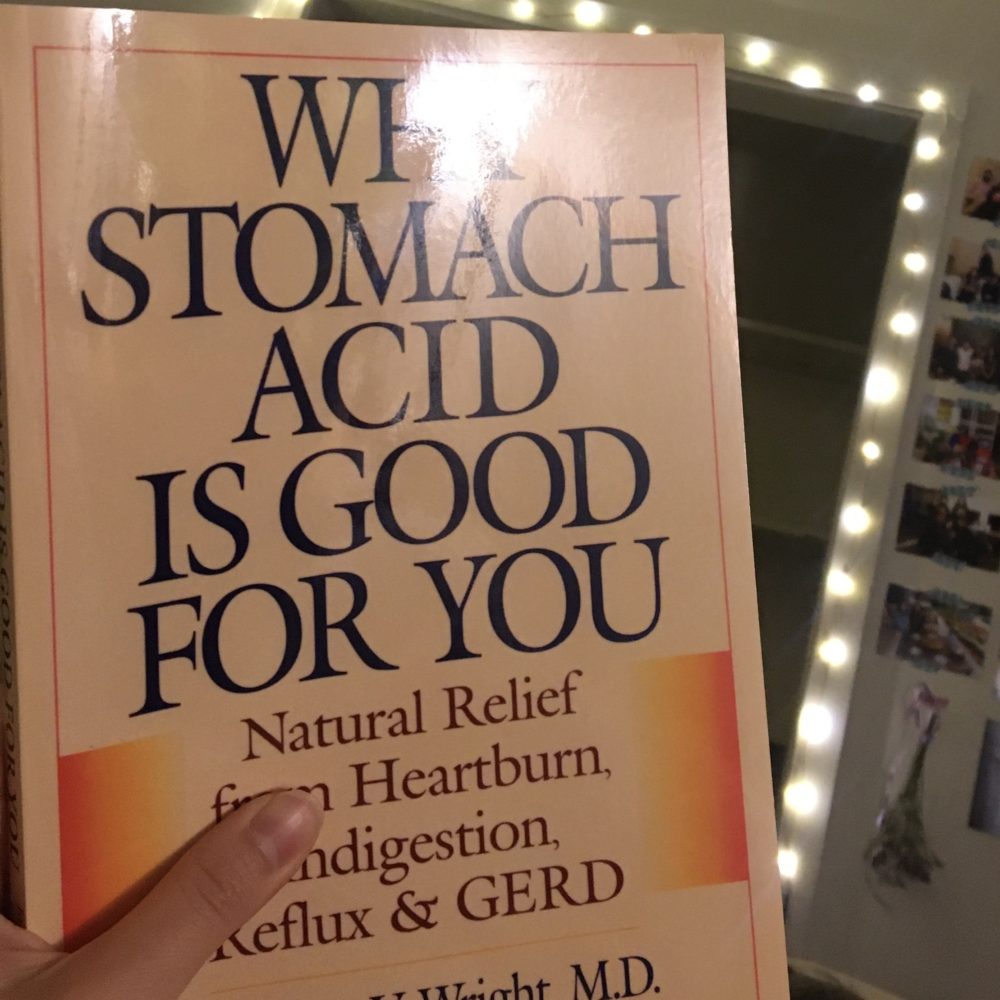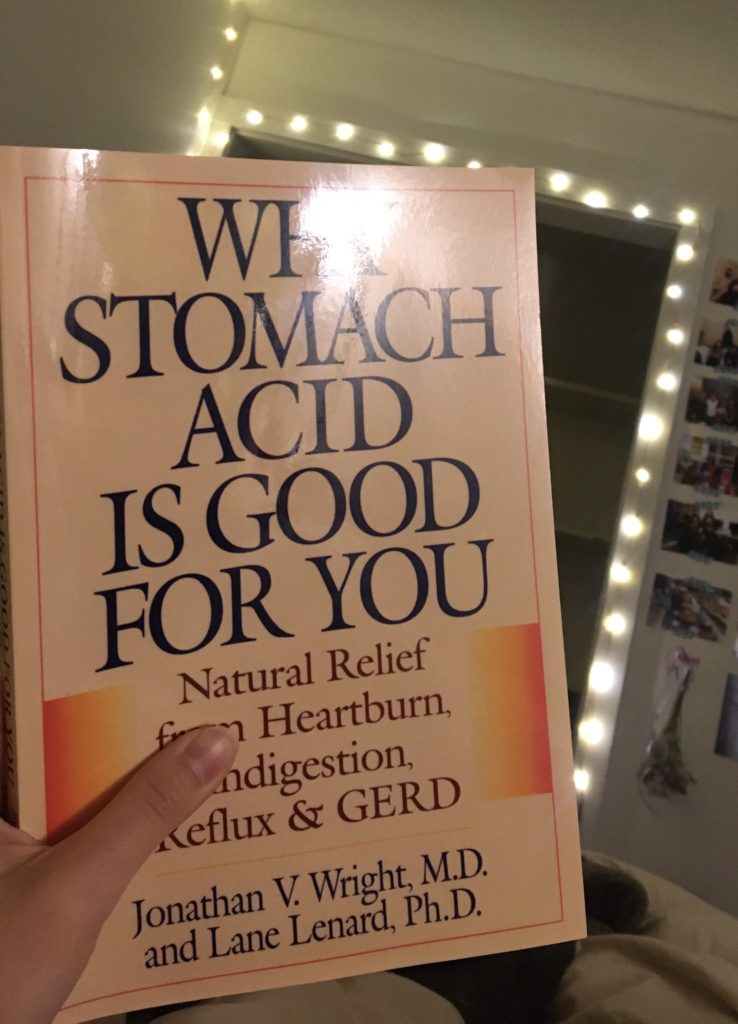
Why You Need Stomach Acid
We’ve all been embarrassed by a particularly loud or smelly accidental fart or burp, but what if it’s a symptom of something more serious?
I’m of course referring to… low stomach acid levels?
Stomach acid is incredibly important for our digestive health, and is often the cause of common health issues such as heartburn, bloating, gassiness, and can even cause asthma (I know right?).
Stomach acid helps us break down food into components that allow our bodies to extract and absorb necessary nutrients. Starting with food, it’s transformed into a mushy food substance called bolus in the mouth, and then further softer into a form called chyme. The stomach acid helps break down this chyme, for example proteins into amino acids that can be readily absorbed by the body. This breakdown and absorption can only happen within a very narrow range of acidity, about 1.5-3.0, which is why we need enough stomach acid to make sure this breakdown happens.

When our pH is too high, viscous bile that is essential for the absorption of macros such as fats and proteins isn’t released. Instead, these undigested fats and proteins move down our GI tract to harm the villi and microvilli in the small intestine, causing the lining of the small intestine to become “leaky” or less selective about what nutrients can pass through. When fats of inappropriate sizes make it through to the gut, it overwhelms our immune system, and these fats which should be nourishing us actually triggers inflammatory responses. Undigested fats that move on to the large intestine also wreaks havoc there, because as it tries to pass into the colon, it can get clogged or jam openings, causing dysbiosis (microbial imbalance) and disrupting healthy flora. Without healthy bacterial flora, the cells of the colon are weakened and out of balance, causing inflammation and loss of tone in the colon. Over time, this inflammation puts us at risk of chronic digestive diseases such as gastroesophageal reflux disease (GERD), irritable bowel syndrome (IBS), or Crohn’s disease.
In addition, because we’re not properly breaking down our food and absorbing its nutrients, while we can be eating a perfect, whole foods-based diet, we can be left fatty acid or nutrient deficient, indirectly leading to other health issues caused by nutrient deficiency, such as fatigue, dizziness, or trouble breathing.
How to Know if You Lack Stomach Acidity
In this way, it’s important that we make sure we are taking care of our digestive systems and not ignore signs of a dysfunctional digestive system— when we experience bloating, gas, heartburn, or acid reflux, these are symptoms of a system that’s not working properly and needs to be addressed. Undigested food not only leads to discomfort, but can disturb our immune system and natural functions of the body.
Other symptoms include:
- muscle cramping
- diarrhea/constipation.
- food allergies/sensitivities
- acne
- hair loss and brittle nails (often the case for women)
- worsened depression and anxiety (caused by a vitamin B12 deficiency; Source 1, Source 2)
What to Do To Increase Your Stomach Acidity
- The last thing you should do is take an antacid– while most people believe that to address heartburn and acid reflux you should be increasing the alkalinity (lower the acidity) in your stomach, this only prolongs and in fact exacerbates the problem. People will experience temporary relief because of the lowered acidity, but now your stomach lining is even less acidic, and you’ll experience even more difficulty digesting food. It’s a dangerous spiral!
- Individuals can look to herbal remedies such as “bitters” to help improve digestive function. Bitters work by increasing the flow of digestive juices, including HCl, bile, pepsin, gastrin and other pancreatic enzymes. It also increases production of saliva, making the process of digestion better. Some common bitters include ginger, dandelion, fennel, peppermint. Bitters are best used steeped in warm or hot water, and sipped before a meal.
- Other home remedies include spending more time chewing your food or incorporating more fermented vegetables in your diet (my favorites include kimchi and natto).

In cases of severe stomach acid deficiency, you can also take HCl (betaine hydrochloride) supplements to lower the pH in your stomach, and help aid digestion.
If you found this article useful, or would like more tips on how to address your own health concerns, send me a message at kokumura@kakikata.space! I reply to all emails, and I love hearing from my readers!
Source: Wright, Jonathan V. MD & Lenard, Lane Ph.D. (2001). Why Stomach Acid Is Good for You: Natural Relief from Heartburn, Indigestion, Reflux and GERD. M. Evans & Company.